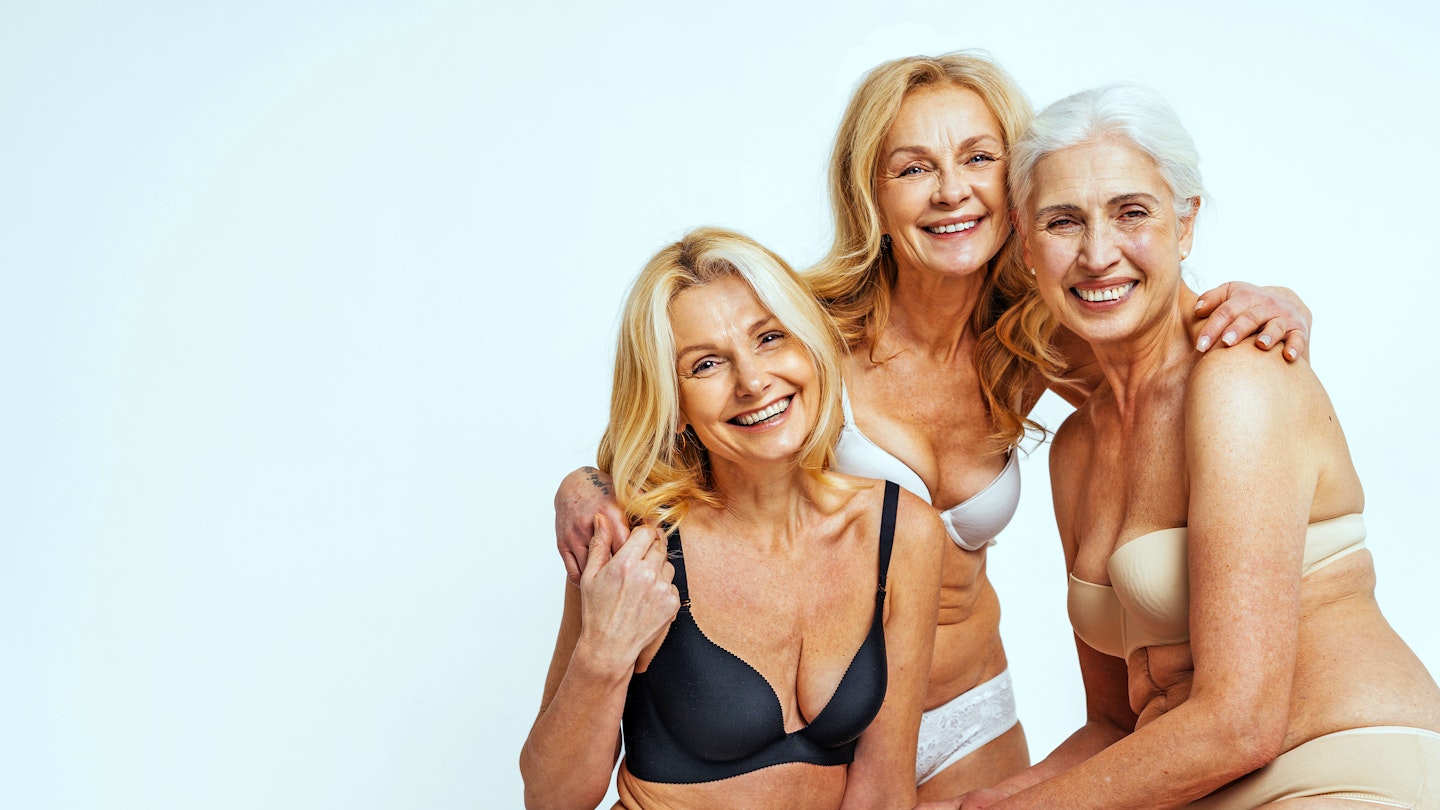Body positivity — the theme of this week’s issue — is all about celebrating who we are. Here’s how to stop putting pressure on yourself and embrace the wonderful you
Smooth curves. Super-long legs. Perfect boobs. When faced with images of flawless figures on our screens, it can make feeling happy about our own bodies almost impossible.
Even when we know many of these images are edited, we cannot shake the anxiety and unhappiness we feel.
And it’s getting worse.
A report by the Women and Equalities Committee reveals that lockdown has worsened existing body image anxieties and created new insecurities for thousands of people in the UK.
Some 53 per cent of adults found the first lockdown made them feel worse about their body image.
This was exacerbated by the media’s focus on limiting weight gain while leisure facilities were closed, plus anxiety caused by increased video-calls.
Increased social media use and exposure to online advertising means concerns about our appearance are starting younger and lasting for longer.
Principal Cognitive Behavioural Psychotherapist Natalie Englander is Deputy Clinical Lead of an NHS mental health service.
Here, she shares her advice on how we can all start to appreciate our bodies more.
Forget BMI
The committee’s report has called on the Government to revise its use of BMI as a tool to find a ‘healthy weight’. Using BMI can be misleading, because two people with the same score can have very different physical and mental health.
Natalie says: ‘The BMI measure creates specific ideals. If you receive an “overweight” or “obese” result, you may face obesity stigma, associated with significant psychological consequences such as anxiety, low self-esteem and disordered eating.
‘Forget solely using BMI to find your “healthy weight”, and instead focus on the message given by the Health at Every Size approach, which advocates that wellbeing and healthy habits are more important than any number on the scale.
‘Your actual size is based on genes, lifestyle, age and other factors. Strive to eat intuitively, and exercise in moderation to discover what feels good for you and your body.’
Be digi-aware
For many, lockdown life involved scrolling through social media and seeing altered images of celebrities promoting unrealistic expectations of how women’s bodies should look.
The committee reported that many advertisers continue to rely heavily on image editing, which contributes to the development of poor body image — and they requested the Government bring forward legislation to restrict or ban altered images.
Natalie says: ‘To reverse negative body image, you need to unlearn what the media has taught you. This involves recognising that advertisers may be pushing an unrealistic body image to sell a product.
‘Unfollow accounts on social media that make you feel bad about your body, or delete your apps for a week. Just taking a step back can help reset your self-image.’
Appreciate your body
Rejecting unrealistic body ideals is one thing. But appreciating the body we already have is another.
The committee requested that Public Health England focus on the Health at Every Size approach, which de-emphasises weight loss as a health goal.
Natalie says: ‘It’s easy to be your own worst critic, especially when looking in the mirror. But begin to see your body as a whole, and appreciate what it does for you.
‘Your legs take you on long, beautiful walks, your strong arms carry your child, your heart’s keeping you alive.
‘Once you become more aware of your body’s ability, you’ll criticise less and in turn, improve your positive body image.’
Prioritise you
Lockdown prevented us from doing activities that made us feel good — things that contributed to a sense of self-worth — so it’s no surprise that the number of people perceiving their body negatively is growing in the UK.
The committee’s survey revealed 61 per cent of adults feel negative about their body image most of the time. They also reported that being teased, criticised or bullied based on weight or appearance leads to poor body image.
Natalie says: ‘The country’s restrictions took away our coping strategies and gave us more time to worry about appearance. Life has changed for so many of us, so it’s more important than ever to engage in positive activities, such as hobbies or seeing family.
‘Also, notice what triggers your self-critical thoughts and ask yourself: How can I best take care of myself in this moment?
‘By prioritising your needs, it will give you the mental clarity to work on your self-esteem and build better body image.’
Edited by Julia Sidwell
Natalie Englander can be found on Instagram @the.perfectionism.therapist
